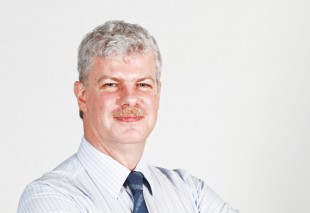

Piloting the 'Good Ship Starwood'

Guido de Wilde tells Guy Wilkinson how to skillfully steer the owner-operator relationship
Steering a big ocean-going vessel like the ‘Good Ship Starwood’ safely through the often choppy waters of owner relationships is not a task for the faint-hearted.
Yet Guido de Wilde, the chain’s senior vice president and regional director in the Middle East, has been doing it for almost eight years now, and has only enhanced his reputation in the process. What tips can he share for aspiring emulators?
“Behind every hotel is a person,” he says. “Owners in this region are not usually institutional investors, but members of ruling families, private business people. [The owner-operator relationship] is a marriage and you’ve got to have mutual understanding.”
De Wilde points out that whereas Starwood owns or leases hotels in other regions, in the Middle East, all its hotels are managed under contract, which makes keeping owners happy a key role. That involves not just meeting ROI expectations and communicating transparently, but developing trust.
“You’ve got to meet your owners on a regular basis, even if that means you walk into an owner’s office without having a specific agenda. I think especially in this part of the world, where relationships really drive business, it is important that you have that face-to-face, eye-to-eye, hand-shake approach with your owners.”
De Wilde cites the Sheraton Kuwait as an example, where the chairman of the owning company who signed the first contract back in 1966 is still active.
“Every time I go to Kuwait, the first thing I do is I go and see him, I go to the majlis, I drink a cup of tea in the morning. We wouldn’t have been able to have a more than 40-year long relationship if we had not maintained that relationship — and also if we didn’t deliver, obviously, on the financials.
“Of course we bring our brands to the table, our international distribution system, our global presence, our SPG (loyalty) programme, but there is not just Starwood, owners have a choice.
In our hotels we are increasing our occupancy through word-of-mouth [referrals]. The same is true of how owners talk to each other. They sit in the majlis of an evening and say, “My hotel is operated by Starwood” and another would say “Mine is operated by Rotana” or “by Kempinski” and we need to very cleverly understand that culture.
Quick Response
De Wilde stresses that when management contracts last for 20 years, it is also crucial that there is continuity of paperwork, so that successive generations of Starwood personnel provide a consistent approach.
He spends a lot of time supporting his general Managers, who are the first point of contact with owners. Fast response is also key: “I can honestly tell you that when an owner calls, I drop everything I’m working on. It’s like when I was a GM, I would drop everything when a guest called.”
Apart from his diplomatic role, De Wilde sees his job as primarily strategic. “Owners are expecting from us that we combat competition. Margins are also under pressure because every year your cost of doing business increases.
We have to come to owners with new ideas and we pride ourselves on thinking creatively.” One such exercise is the recent ‘complexing’ of Starwood’s 14 hotels in Dubai for the purpose of purchasing non-specialised items, an initiative with Mohebi Logistics that required Starwood to convince owners about the benefits of the business model and that they would not lose out by co-operating with each other.
“Many of our owners have been in this business for decades, so they understand it. So, yes, charm, yes, charisma, yes, transparency – that’s all very important – but there has to be a sound business case to convince your owner.”
Guy Wilkinson is a director of Viability, a hospitality and property consulting firm in Dubai. For more information, email: guy@viability.ae